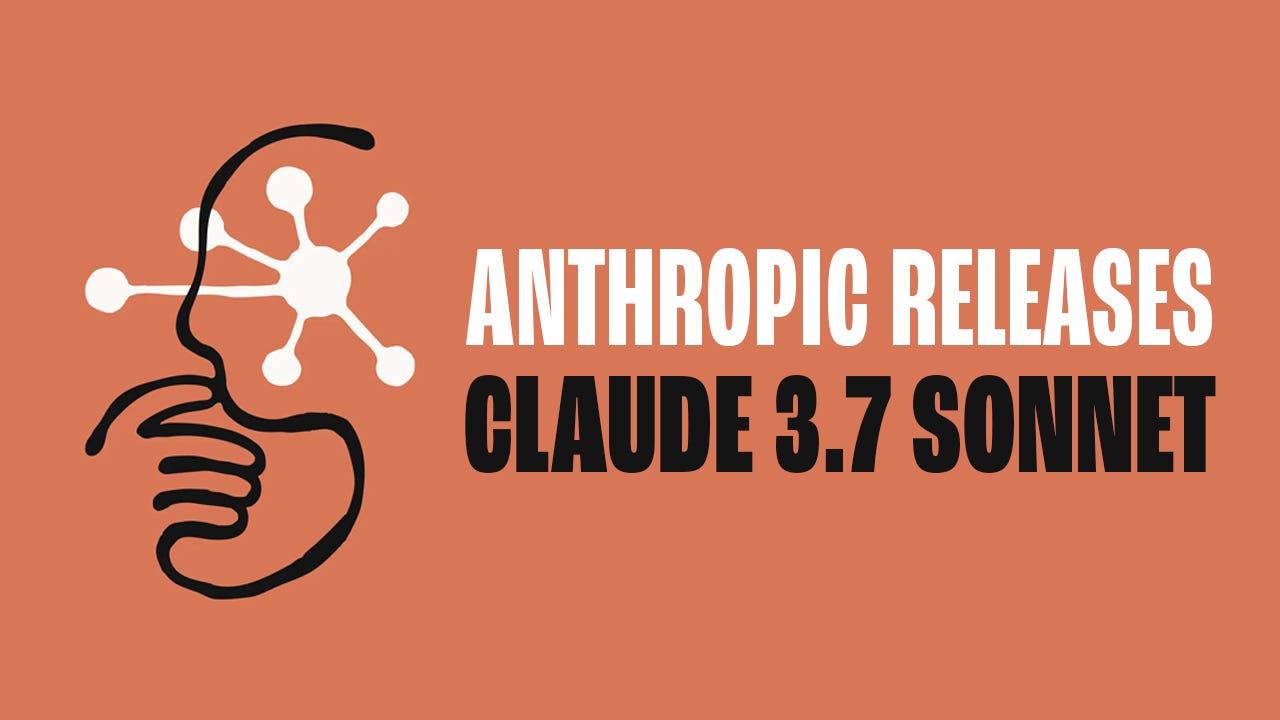
Anthropic has emerged as a frontrunner with its impressive Claude family of models. These versatile AI assistants can tackle everything from writing compelling emails to solving complex coding challenges – and the latest innovations are changing the game entirely.
Meet the Claude Family: More Than Just Another AI
Anthropic’s Claude lineup features three distinct models, each with unique capabilities designed for different use cases:
Claude 3.5 Haiku: The Speed Demon
This lightweight model delivers lightning-fast responses without sacrificing quality. Perfect for quick tasks and day-to-day assistance, Claude 3.5 Haiku offers impressive performance at a fraction of the cost of larger models.
Claude 3.7 Sonnet: The Revolutionary Reasoner
As Anthropic’s current flagship model, Claude 3.7 Sonnet introduces a groundbreaking hybrid reasoning system. This innovation allows users to choose between instant responses or more thoughtful, deliberate answers that undergo an extended “thinking” process.
When reasoning mode is activated, Claude 3.7 Sonnet enters a specialized thinking phase lasting anywhere from seconds to minutes. During this time, the AI methodically breaks down complex problems into manageable components and verifies its work—mimicking human thought processes more closely than ever before.
Claude 3 Opus: The Powerhouse (But Not For Long)
Surprisingly, Claude 3 Opus—currently Anthropic’s largest and most expensive model—isn’t its most capable. However, industry watchers expect this to change with future updates to the Opus line.
Breaking Performance Barriers
Even with reasoning features disabled, Claude 3.7 Sonnet stands among the industry’s top-performing AI models. Meanwhile, the recently upgraded Claude 3.5 Haiku outperforms the larger Opus on several benchmarks despite its smaller size and inability to process images.
All Claude models feature an impressive 200,000-token context window (equivalent to approximately 150,000 words or a 600-page novel), enabling them to handle extensive documents and complex instructions with ease.
Practical Applications and Limitations
The Claude family excels at following detailed instructions, using specialized tools, and producing structured outputs like JSON. However, these models do have limitations:
- They cannot access the internet, limiting their knowledge of current events
- They cannot generate images (though they can produce simple line diagrams)
- They occasionally “hallucinate” or make factual errors
Pricing Structure: From Free to Enterprise
API Pricing
- Claude 3.5 Haiku: $0.80 per million input tokens, $4 per million output tokens
- Claude 3.7 Sonnet: $3 per million input tokens, $15 per million output tokens
- Claude 3 Opus: $15 per million input tokens, $75 per million output tokens
Subscription Plans
- Free tier: Basic access with usage restrictions
- Claude Pro ($20/month): 5x higher rate limits, priority access, and feature previews
- Claude Team ($30/user/month): Business-focused with management dashboard and integrations
- Claude Enterprise: Premium offering with proprietary data upload, expanded context window (500,000 tokens), and additional features
Enhanced Productivity Features
Both Pro and Team subscribers gain access to valuable tools like Projects, which grounds Claude’s responses in specific knowledge bases, and Artifacts, a collaborative workspace for editing AI-generated content including code, website designs, and documents.
The Legal Landscape
As with all generative AI, users should be aware of potential legal concerns. While Anthropic claims fair-use protection for its training methods, ongoing litigation in the AI space suggests caution. Anthropic does offer protection policies for certain customers, but ethical questions around using models trained on data without explicit permission remain unresolved.
Conclusion: The Future of AI Assistance
With its innovative reasoning capabilities and tiered model approach, Anthropic’s Claude family represents a significant step forward in AI assistance. Whether you need lightning-fast responses or deeply considered analysis, there’s a Claude model designed to meet your needs—transforming how we work, create, and solve problems in today’s increasingly AI-powered world.
READ ALSO: Denmark Proposes Nationwide Ban on Smartphones in Schools
Related posts:
 OpenAI Launches GPT-5: The Game-Changing AI That Makes Every Previous Model Look Ancient
OpenAI Launches GPT-5: The Game-Changing AI That Makes Every Previous Model Look Ancient
 Samsung Unveils Game-Changing Micro RGB TV Technology That Delivers Perfect Colour Accuracy
Samsung Unveils Game-Changing Micro RGB TV Technology That Delivers Perfect Colour Accuracy
 Microsoft Launches Game-Changing Taskbar Apps That Transform Windows 11 Productivity Forever
Microsoft Launches Game-Changing Taskbar Apps That Transform Windows 11 Productivity Forever
 OpenAI Sora: Your Guide to the Text-to-Video Revolution
OpenAI Sora: Your Guide to the Text-to-Video Revolution




Leave a Comment
You must be logged in to post a comment